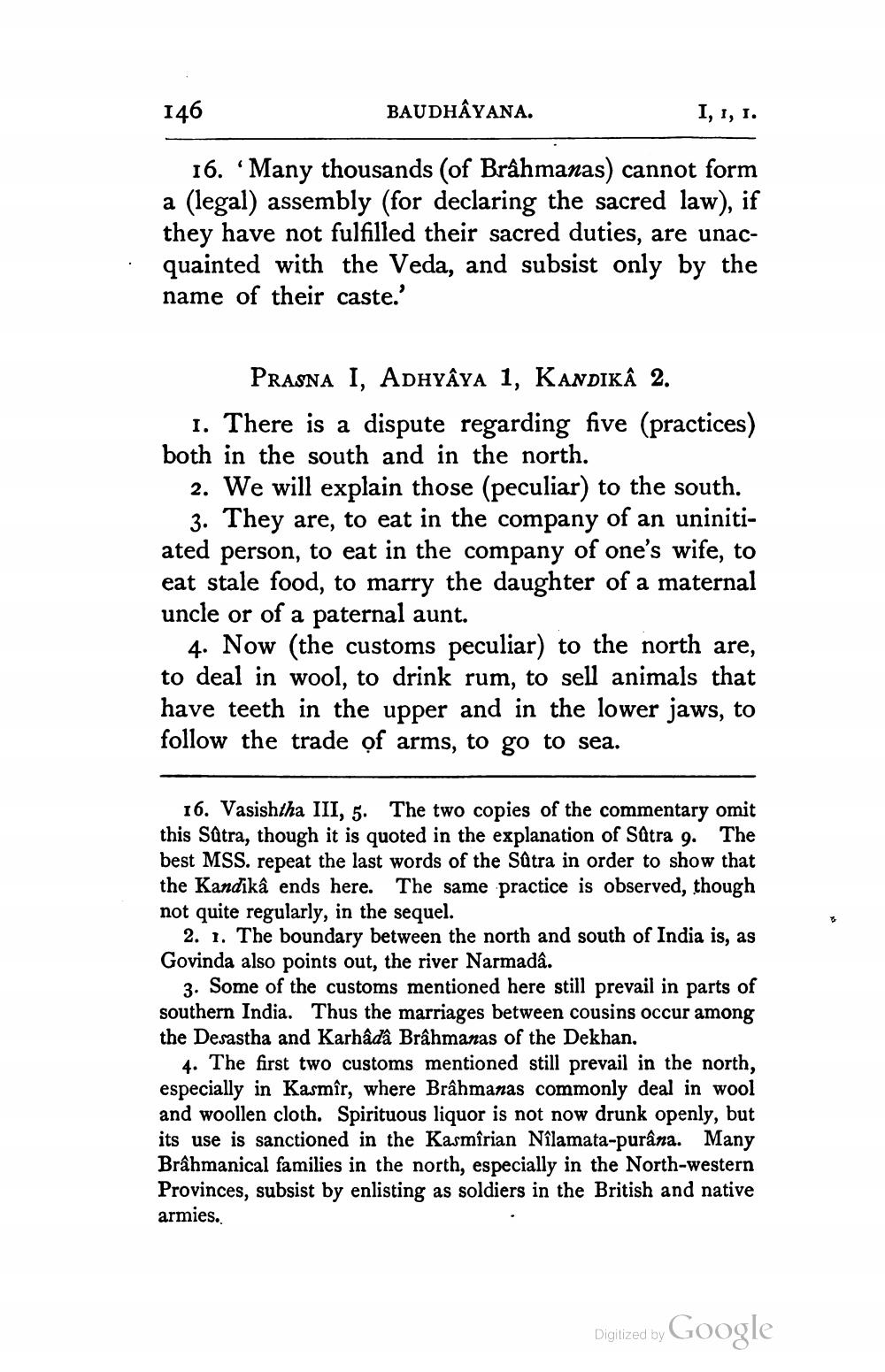________________
146
BAUDHAYANA.
I, 1, 1.
16. "Many thousands (of Brâhmanas) cannot form a (legal) assembly (for declaring the sacred law), if they have not fulfilled their sacred duties, are unacquainted with the Veda, and subsist only by the name of their caste.'
PRASNA I, ADHYAYA 1, KANDIKÂ 2. 1. There is a dispute regarding five (practices) both in the south and in the north.
2. We will explain those (peculiar) to the south.
3. They are, to eat in the company of an uninitiated person, to eat in the company of one's wife, to eat stale food, to marry the daughter of a maternal uncle or of a paternal aunt.
4. Now (the customs peculiar) to the north are, to deal in wool, to drink rum, to sell animals that have teeth in the upper and in the lower jaws, to follow the trade of arms, to go to sea.
16. Vasishtha III, 5. The two copies of the commentary omit this Satra, though it is quoted in the explanation of Sätra 9. The best MSS. repeat the last words of the Sûtra in order to show that the Kandikâ ends here. The same practice is observed, though not quite regularly, in the sequel.
2. 1. The boundary between the north and south of India is, as Govinda also points out, the river Narmada.
3. Some of the customs mentioned here still prevail in parts of southern India. Thus the marriages between cousins occur among the Desastha and Karhâdâ Brâhmanas of the Dekhan.
4. The first two customs mentioned still prevail in the north, especially in Kasmîr, where Brahmanas commonly deal in wool and woollen cloth. Spirituous liquor is not now drunk openly, but its use is sanctioned in the Kasmîrian Nîlamata-purâna. Many Brâhmanical families in the north, especially in the North-western Provinces, subsist by enlisting as soldiers in the British and native armies.
Digitized by Google




